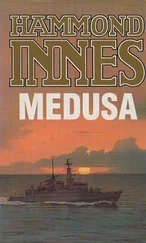Hammond Innes - The Lonely Skier
Здесь есть возможность читать онлайн «Hammond Innes - The Lonely Skier» весь текст электронной книги совершенно бесплатно (целиком полную версию без сокращений). В некоторых случаях можно слушать аудио, скачать через торрент в формате fb2 и присутствует краткое содержание. Жанр: Прочие приключения, на английском языке. Описание произведения, (предисловие) а так же отзывы посетителей доступны на портале библиотеки ЛибКат.
- Название:The Lonely Skier
- Автор:
- Жанр:
- Год:неизвестен
- ISBN:нет данных
- Рейтинг книги:3 / 5. Голосов: 1
-
Избранное:Добавить в избранное
- Отзывы:
-
Ваша оценка:
- 60
- 1
- 2
- 3
- 4
- 5
The Lonely Skier: краткое содержание, описание и аннотация
Предлагаем к чтению аннотацию, описание, краткое содержание или предисловие (зависит от того, что написал сам автор книги «The Lonely Skier»). Если вы не нашли необходимую информацию о книге — напишите в комментариях, мы постараемся отыскать её.
The Lonely Skier — читать онлайн бесплатно полную книгу (весь текст) целиком
Ниже представлен текст книги, разбитый по страницам. Система сохранения места последней прочитанной страницы, позволяет с удобством читать онлайн бесплатно книгу «The Lonely Skier», без необходимости каждый раз заново искать на чём Вы остановились. Поставьте закладку, и сможете в любой момент перейти на страницу, на которой закончили чтение.
Интервал:
Закладка:
I left Mayne at the Luna and then went on to the ufficio della posta where I caught the air mail with my second report to Engles and the roll of film. When I arrived at the Splendido, Mancini was drinking in the bar with several fellow hoteliers. He greeted me as though I were the one person he had been waiting for. He had great ability as a host. ‘You must have a drink, Mr Blair,’ he said. ‘The Luna is always so cold.’ And he grinned like a playful lion at a thin, neat little Italian, whom I guessed to be the owner of the Gran’ Albergo Luna. ‘A large Martini — yes? It will prevent ennui. Then we will go and buy the slittovia. Afterwards we will celebrate. Whenever one of us buys something, we all celebrate. It is the excuse. Always there must be the excuse.’
The lounge of the Luna was warm and cosy when we arrived. There were between twenty and thirty people there — all men and mostly Italian. They had the indifference of spectators. They were not there to buy. They were there because it was a social function and there would be drinks afterwards. They crowded round Mancini, laughing and chattering, congratulating him on his latest acquisition. Mayne was sunk in an easy-chair with a tall glass in front of him. I went across and joined him. He pulled up a chair and ordered me a drink. But he did not seem interested in conversation. He was watching the scene closely. His interest switched suddenly to the door. I followed the direction of his gaze and was surprised to see that Valdini had entered. He moved jauntily with an air of colossal self-importance. This morning it was a darker suiting with a sheen of mauve in it. The shirt was cream-coloured and the tie red, shot with blue flashes of forked lightning. ‘What’s Valdini doing here?’ I asked. ‘Shouldn’t have thought he would have been interested in an auction.’
‘I don’t know.’ Mayne spoke softly, as though to himself, and there was a puzzled frown on his dark handsome face.
Then the auctioneer entered. He moved with the self-conscious air of a man about to conjure something out of a hat. You felt there should have been a fanfare of trumpets to herald that entrance. He moved through the room as though it were an Audience, bowing to acquaintances, pausing a moment here and there to shake a hand. You felt it was his moment. He had two waiters hovering behind him. He indicated a table. He had it moved. He chose a chair. It was placed ready for him. He tossed his papers on to the table. The maitre d’hotel brought on his hammer and set it carefully on the polished table top. An imaginary fleck of dust was hastily removed. Then finally, the auctioneer settled himself behind the table. He beat upon the top of it dramatically. The room began to settle itself. Mancini moved to a vacant table just near me. The pack followed at his heels. He pulled his chair next to me. ‘He is amusing — yes?’ he said, nodding towards the auctioneer.
‘The entrance was nicely handled,’ I said.
He smiled and nodded. ‘We are a theatrical race,’ he said. ‘That is why, when an Italian is executed, he dies well. He may not like the result, but he enjoys the moment. Now, you will see. We shall be very quiet and he will talk for a long time. We know this slittovia as well as we know our own hotels. But he will describe it to us as though we had never seen it. He will make the lyric of the description. He will become excited. He will make gestures. It will be the grand performance. And then, when he is exhausted, I shall make the bid and it will be sold for what has already been arranged. It is all very un-English,’ he added with a sly twinkle. ‘But I am glad you are amused. If you were not amused, you would be bored, and that would make me sad.’
The hammer crashed on to the table top again. The room stopped talking. The curtain had been rung up. The performance had begun. The auctioneer began reading the conditions of sale. He slipped through it rapidly. It gave him no scope. But then came the reasons for the sale. He told of its original purchase by the ‘miserable’ Sordini from the collaborator who had once owned the Excelsior. He told of Sordini’s arrest, of the ‘world-shaking’ news that he was Heinrich Stelben, a German war criminal wanted for the most ‘terrible, fearful and blood-thirsty crimes against the Italian and British peoples’. He drew a word portrait of this ‘madman’. He touched briefly on the crimes of the ‘terrible tedesci’, and barely saved himself from a short history of how the Italian people had been ‘roused by terrible and barbaric acts’ and had forced the ‘hated’ Germans to surrender. Then suddenly, pianissimo, he began to describe the slittovia and the hut on Col da Varda. Gradually he whipped himself into a lyrical frenzy — it was a ‘stupendous’ opportunity for an astute business man with ‘grand’ ideas, an incredibly beautiful property, thoroughly equipped by ‘brilliant German engineers’, a ‘small hotel with a finer panoramic view than the Eagle’s Nest at Berchtesgaden’.
Then suddenly his voice ceased. The room was silent as though the performance had taken everyone’s breath away. At any moment I expected a wild outburst of applause. Surely they must demand an encore. But the room remained silent. The auctioneer ran his fingers through his long hair, which had fallen in dank strands across his face. His thin features wore a disappointed look. He pushed his glasses-farther back on his long nose and offered the property for sale in a cold matter-of-fact voice.
‘Due cento cinquanta mila.’ Mancini’s voice was quiet and there was a tired air of finality about the offer. A quarter of a million lire. The auctioneer pretended to be aggrieved. That was the low reserve placed on the property by the Government. Mancini had doubtless put in some hard social work to get the figure down as low as that. The auctioneer called for further bids. But he knew it was hopeless. He knew it was all arranged. His brief moment was over. He was no longer interested. He gave a shrug and raised his hammer.
‘Tre cento mila.’ The voice was quiet and smooth. A sudden flood of surprised volubility swept the room. Heads were turned, necks craned. I knew the voice before I picked out his neat little figure strategically placed where the sunlight fell on him in a shaft from one of the tall windows. It was Valdini. His chest, gaily coloured like the plumage of some elaborate tropical fowl, was puffed out importantly. His dark rubbery face beamed as he held the limelight.
Mancini was talking rapidly to the men around him. He was literally quivering with anger. I turned to Mayne to make some comment. But he did not appear to hear me. He was leaning forward, gazing at Valdini with intense interest. He was smiling slightly and there was a glint in his eyes — of amusement or excitement, I could not tell which.
The auctioneer was clearly astonished. He asked Valdini if he had heard correctly. Valdini repeated his bid — three hundred thousand lire. All eyes were turned to Mancini, to see what the great man would do. He had recovered himself. One of his friends slipped quietly out of the room. Mancini lit a cigarette, settled himself more comfortably in his chair and raised the bidding ten thousand.
Valdini did not hesitate. He went straight up to four hundred thousand. ‘And ten,’ said Mancini.
S3 ‘Fifty,’ came from the window. Mancini raised to sixty. Valdini jumped to five hundred thousand. So it went on, Mancini going up in tens and Valdini in fifties till they hit the million. Word of the duel had spread quickly through the hotel. People were standing thick about the door.
At a million lire there was a pause in the bidding. Mancini had been getting slower and slower in his bids as the figures rose. He sat hunched in his seat, his jaw set and his eyes sullen. It was not the money he cared about so much as this deliberate flouting of his position in Cortina. It hurt his pride to have to haggle in public for something that everyone knew he had arranged in private. I leaned across to him and ventured to ask him what the property was worth. ‘To me, perhaps a million,’ he replied. ‘To an outsider, nothing.’
Читать дальшеИнтервал:
Закладка:
Похожие книги на «The Lonely Skier»
Представляем Вашему вниманию похожие книги на «The Lonely Skier» списком для выбора. Мы отобрали схожую по названию и смыслу литературу в надежде предоставить читателям больше вариантов отыскать новые, интересные, ещё непрочитанные произведения.
Обсуждение, отзывы о книге «The Lonely Skier» и просто собственные мнения читателей. Оставьте ваши комментарии, напишите, что Вы думаете о произведении, его смысле или главных героях. Укажите что конкретно понравилось, а что нет, и почему Вы так считаете.












